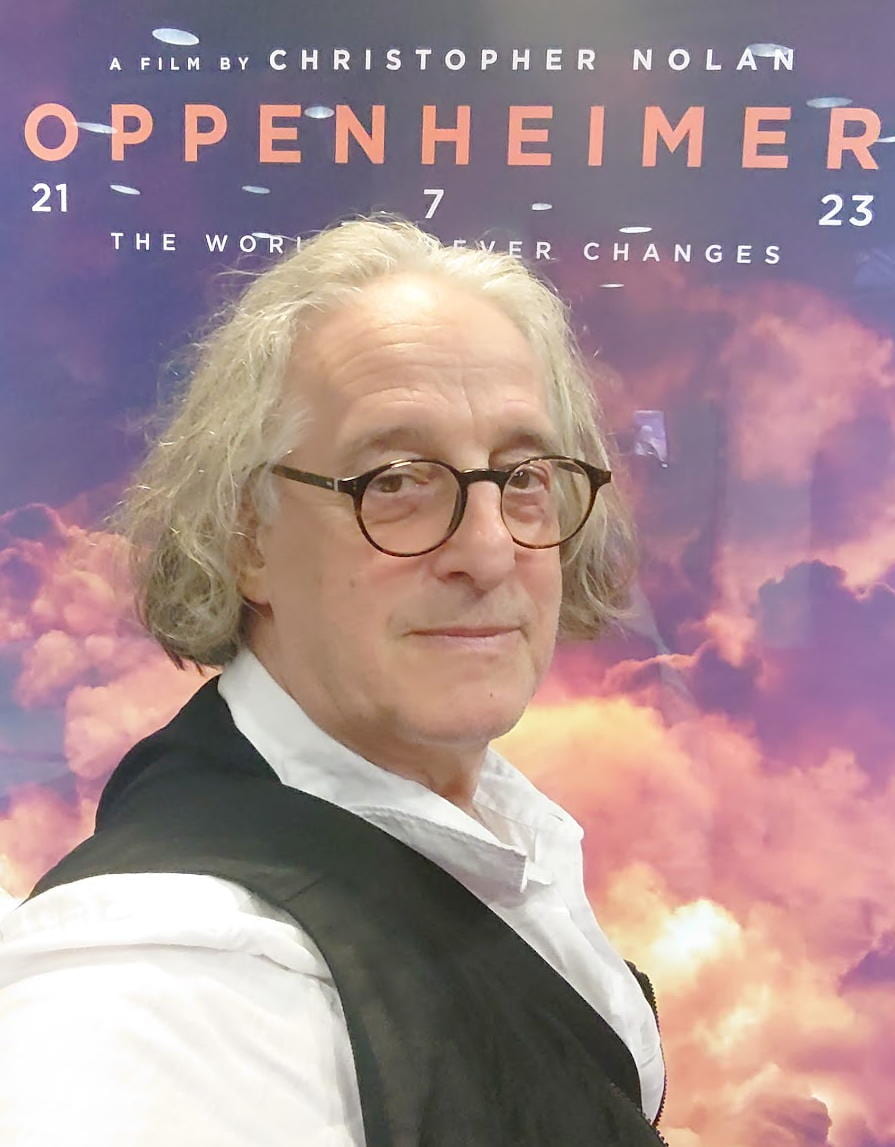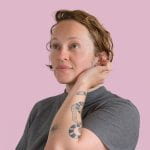The Auto / Bio / Fiction series of talks and seminars continues with a focus on the visual (Please note the later start this time).
23 November 2023, 6.30pm UTC (online)
Michael Newman, “From Portrait to Anti-Portrait: Facing the destruction of humanity”
 What happens to the portrait when human existence is in question?
What happens to the portrait when human existence is in question?
In this talk I bring together two moments of crisis for humanity: the first being the experience of the camps in World War II – both the ‘concentrationary’ and the death camps – and nuclear destruction at Hiroshima and Nagasaki followed by the Cold War aftermath; and the second in the present, when the challenge comes from technologies of surveillance and self-monitoring, and accelerating extinction due to climate change.
In both, the representational portrait based on renaissance and enlightenment ideas of sovereignty and the individual is fundamentally challenged, and what I call anti-portraits emerge.
Out of the concentrationary – for which a crucial touchstone is Robert Antelme’s book The Human Race – the portrait splits into the face and the head. In the moment of surveillance, self-monitoring, machine learning and AI based facial recognition, other strategies are pursued, including the proxy portrait and ‘visual’ auto-fiction.
At each moment, the anti-portrait responds to something fundamental at stake, challenging the limits and the abuses of representation and identity.
Sarah Walker, “Writing the self in the expanded field: autofiction as a strategy in text-based visual art”
 Autofiction allows for a stretching of both form and content in personal writing, making apparent the limits of objectivity, and producing a form of representation that allows for abstraction and poetics. These qualities become even more charged when writing moves off the page into the gallery, through text-based visual art.
Autofiction allows for a stretching of both form and content in personal writing, making apparent the limits of objectivity, and producing a form of representation that allows for abstraction and poetics. These qualities become even more charged when writing moves off the page into the gallery, through text-based visual art.
My practice uses text in installation works to explore my own anxieties around death and disaster. In this talk, I will discuss the affective possibilities of autofiction in the expanded field. I will describe the making of the work Bolt Upright, a large-scale handwritten work which attempts to describe a moment of contending with my own mortality.
The work involves ten thousand words of text that collapse into nested parentheses, producing a tactile rendering of anxieties around death. Gerard Genette and WJT Mitchell provide a framework of narrative that comprises plot (which provides movement) and description (which pauses movement). In Bolt Upright, this framework is made tactile. Plot is ragged, disrupted and made insufficient by the limits of memory. Description becomes a way of diving into the overwhelming fabric of recollection that makes up a life. The outcome is a narrative full of gaps, holes and inventions: an autofiction whose chaos strives to convey something of the self that tidy writing cannot. I will discuss the possibilities of language in visual art, and how a thrumming, nested wall of words might offer a truer form of self-portraiture through words than any so-called objective rendering of self.
The seminar will be chaired by Claudia Fiorella.
Attendance is free but booking is required to receive a link to attend. Booking has now closed. Here’s the video recording of the seminar:
The speakers
Michael Newman is Professor of Art Writing at in the Art Department at Goldsmiths, University of London. He holds degrees in English Literature and Art History, and a PhD in Philosophy from the Catholic University of Leuven, Belgium. He has published numerous essays on modern and contemporary artists as well as thematic essays on the wound, the horizon, contingency, memory, drawing, and nonsense. His most recent essays are ‘The Long and the Short of It: boredom after the end of the great boredom’, in On Boredom, Rye Dag Holmboe and Susan Morris (eds.), (London: UCL Press, 2021); Florian Hecker’s Resynthese FAVN Revisiting Mallarmé’s Scene’ in Florian Hecker: Halluzination, Perspektive, Synthese (Sternberg Press & Kunsthalle Wien, 2019); and ‘Decapitations: the portrait, the anti-portrait … and what comes after?’ in Kirstie Imber and Fiona Johnstone, eds., Anti-Portraiture: Challenging the limits of the Portrait (London: Bloomsbury, 2020). He is co-editor of Rewriting Conceptual Art (1999) and The State of Art Criticism (2007). The exhibitions he has curated include Tacita Dean at York University, Toronto (2000), and he was the co-curator with Kate Macfarlane of the exhibition FIGURE/S: Drawing After Bellmer at The Drawing Room, London (2021). His essay ‘Hans Bellmer: Thresholds’ has appeared in the companion volume, ON FIGURE/S (London: Ma Bibliothèque, 2021).
His latest essay ‘Deliveries: Moyra Davey’s aerograms and Janice Kerbel’s performances’ is forthcoming in Enclave.
Sarah Walker is a writer and fine artist based in Naarm/Melbourne. She uses comedy, narrative and speculative fiction to create surprising encounters with tensions around death, disaster and catastrophe. Her debut essay collection, The First Time I Thought I Was Dying, was published by UQP in 2021 and won the Quentin Bryce Award. Her writing has been widely published, and she has exhibited across Australia, the UK and Asia. She is a current PhD candidate at RMIT University.
